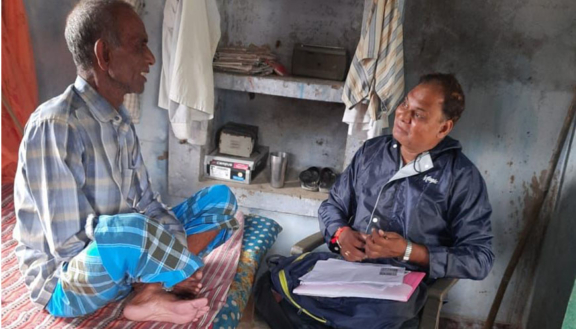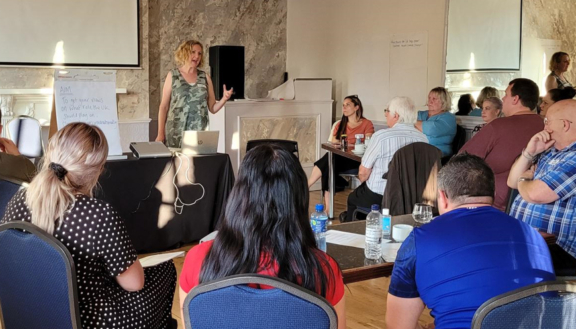Reflecting on COP26
COP26, the 2021 United Nations Climate Change Conference in Glasgow, has finally started. Over the next two weeks, representatives from some 200 countries are gathering to negotiate meaningful action to reduce carbon emissions and to secure fair support to those most affected by climate change. Building on the outcomes of COP21, the talisman issue remains the target of limiting the planetary temperature rise to 1.5°C from pre-industrial levels. Scientists agree about the urgency of this matter, which makes a fully-fledged and palpable commitment to this goal an imperative outcome of the conference. But governments will not act without their publics behind them. And we cannot rely on the admirable actions of a few.
The type of work we support through our ocean and climate programmes is essential. On the one hand, it is clear that the water ecosystem, at whose heart sits the ocean, is integral to the environment and its sustainable management. The effects of the rise of sea levels are manifest in the series of floods and droughts desolating the world, which have an impact on livelihoods and the stability of our future. On the other hand, governmental bodies and citizens, at a global level, must find a stronger sense of unity and thrive to work in a truly democratic way. Statistics continuously show that the majority of people, in the UK and around the world, support immediate climate action. It is up to governments and local authorities to make sure that these collective concerns are addressed and given further vitality in return.
Doing this also requires reaching beyond the committed to attract the interest of those who, though aware, may not prioritise such issues. Resonating with people’s different values is critical if change is to be adopted more widely. Their support invariably underpins the political mandate that governments rely on to implement boundary-pushing policies that are necessary for climate action. As the pandemic has shown, the principal of public consent is not something to be treated lightly.
Public engagement takes different forms. We are pleased to be supporting the first Global Citizens’ Assembly, which brings together 100 citizens from across the world to agree a set of environmental recommendations to be fed into the inter-governmental discussions at COP26. They are a model of how representative democracy movements can enter in dialogue with policymakers, which we hope becomes a staple for future international climate meetings.
We are also supporting the work of Climate Outreach whose ground-breaking Britain Talks Climate research provides an evidence base for framing public communications to different audiences. We have committed additional resources to support their Climate Engagement Initiative, which seeks to persuade governments to strengthen existing commitments to public education and engagement.
In order to meet the necessary targets, action is required at multiple levels. Just as the importance of engaging constructively with the public is sometimes overlooked so, too, is the role of local authorities. Mayors across the world have significant powers and, in the UK, it is estimated that 60% of the necessary changes are within the remits of local government. We have set ourselves a long-term goal of every UK local authority agreeing a public engagement plan for each locality. In light of this, we are pleased to be hosting the ceremony of the second edition of the Foundation’s major Prize for Humanity, which has been awarded to Global Covenant of Mayors for Climate & Energy. The event will take place at COP26 at 11.30am, Tuesday, 9 November, and will be livestreamed.
The eyes of the world are on Glasgow these next two weeks. A great deal hangs on these deliberations. We will not be alone in taking stock in the weeks that follow as we hone our own interventions.
We invited some of our partners to share their reflections on public engagement and climate action ahead of COP26. Check them out below.




